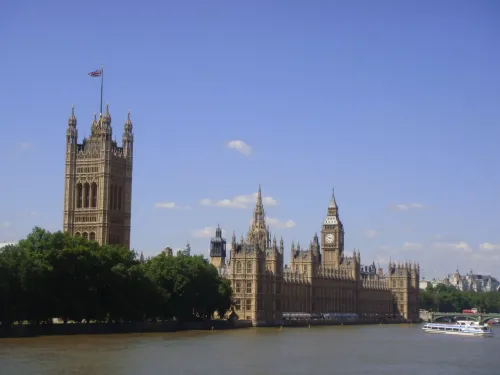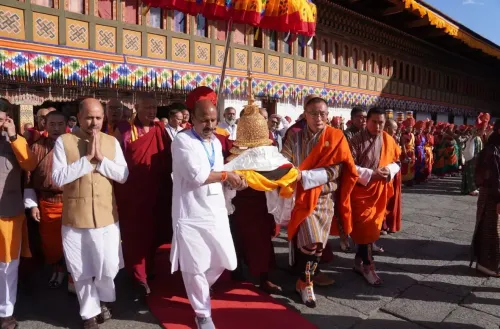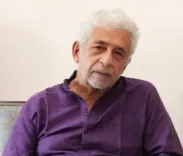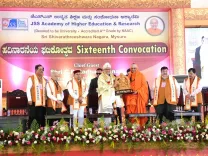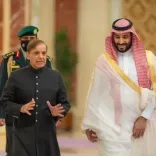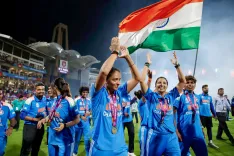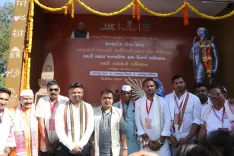Why Do Rahul Gandhi’s Political Punchlines Lead to Legal Trouble?
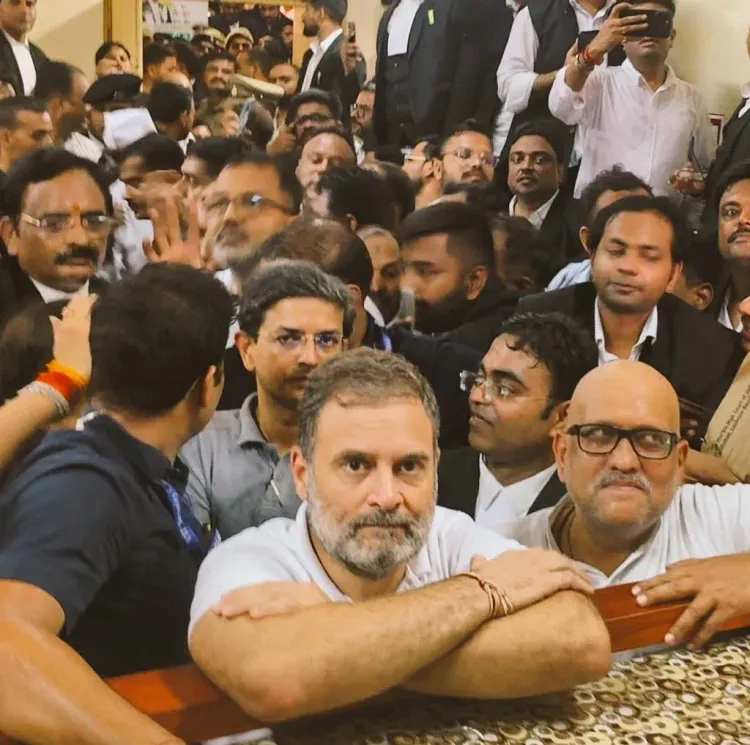
Synopsis
Key Takeaways
- Rahul Gandhi has faced numerous legal challenges due to his political rhetoric.
- Defamation cases often stem from comments perceived as undermining national institutions.
- While he receives bail, these cases impact his political standing.
- The balance between free speech and reputational harm is critical in these disputes.
- Legal proceedings have become a recurring aspect of his political career.
New Delhi, July 15 (NationPress) The Leader of the Opposition (LoP) in the Lok Sabha, Rahul Gandhi, has been embroiled in a series of legal challenges over the past decade, facing significant scrutiny related to defamation and corruption cases across various jurisdictions in India.
Although these legal battles have not resulted in jail time, they have sparked numerous courtroom appearances, occasional convictions, and recurrent bail approvals, highlighting both the impact of his provocative rhetoric and the judiciary's cautious approach.
In a recent turn of events, LoP Rahul Gandhi appeared in front of the MP-MLA Special Magistrate Court in Lucknow on July 15, 2025, to obtain bail in a defamation case linked to statements made about the Indian Army during his Bharat Jodo Yatra.
The complaint was lodged by a retired BRO official, who claimed that LoP Rahul Gandhi’s remarks—implying that Chinese forces had overpowered Indian soldiers in Arunachal Pradesh—constituted criminal defamation.
After the Allahabad High Court rejected his request to quash the summons, LoP Rahul Gandhi appeared in person and presented bonds to the trial court, successfully securing bail.
This case illustrates how defamation lawsuits can arise from public statements perceived as undermining national institutions. It is one of several cases stemming from his unyielding campaign speeches.
The most significant incident occurred in Surat in 2023, where LoP Rahul Gandhi was convicted and sentenced to two years in prison for remarks made in 2019, questioning why “all thieves have the surname Modi.”
The complainant, BJP MLA Purnesh Modi, argued that the statement targeted an entire community. LoP Rahul Gandhi was granted bail while awaiting an appeal, but the conviction temporarily cost him his Lok Sabha seat, marking a rare occasion where legal matters directly influenced parliamentary tenure.
Experts observe that while criminal defamation under Sections 499 and 500 of the Indian Penal Code (now 356 of the Bharatiya Nyay Samhita) is bailable, the political repercussions of such convictions can be substantial.
In 2019, LoP Rahul Gandhi faced lawsuits from officials of the Ahmedabad District Cooperative Bank who objected to allegations of financial misconduct following demonetization. Similar to other cases involving campaign assertions, this led to a court summons but ultimately resulted in bail.
Additionally, defamation complaints were lodged in Mumbai and Guwahati by RSS (Rashtriya Swayamsevak Sangh) members reacting to Gandhi’s controversial comments linking the RSS to the murder of journalist Gauri Lankesh and barring his entry to Barpeta Satra in Assam.
Despite his efforts to dismiss these cases on the basis of political speech, the courts have consistently allowed trial proceedings while granting bail.
The Bhiwandi defamation case, one of the most politically sensitive, revolved around Gandhi’s 2014 assertion that “RSS killed Mahatma Gandhi.” This case, initiated in Maharashtra by an RSS worker, was permitted to advance to trial by the Supreme Court in 2016. Bail was granted, yet it represented a pivotal judicial moment where LoP Rahul Gandhi’s freedom of expression was balanced against historical libel.
Legal specialists at the time regarded the ruling as upholding the right to dissent while demanding accountability for potentially inflammatory public discourse.
Complicating his legal situation further is the National Herald case, initiated in 2015 by BJP leader Subramanian Swamy. It alleges financial mismanagement concerning Young Indian Pvt Ltd’s acquisition of Associated Journals Ltd, which publishes the National Herald newspaper. This case has faced multiple adjournments but remains active.
LoP Rahul Gandhi and his mother, Sonia Gandhi, were granted bail in December 2015 after appearing before a Delhi court. Collectively, these cases reveal a pattern; LoP Rahul Gandhi’s political messaging, often marked by provocative language, continues to attract legal challenges, especially in regions where the BJP and RSS wield significant influence.
His legal team has, however, consistently achieved bail in each instance, allowing him to maintain political engagement while contesting rulings through appeal processes.
While none of these cases have resulted in prolonged imprisonment, their cumulative effect reinforces the fragile boundary between dissent and defamation within Indian politics.
At the core of this debate lies a fundamental conflict: the balance between constitutional free speech and the potential for reputational damage.
For LoP Rahul Gandhi, the courtroom has become a recurring battleground for this struggle. Although bail may provide temporary relief, the political implications—and judicial expectations—remain sharply defined.



